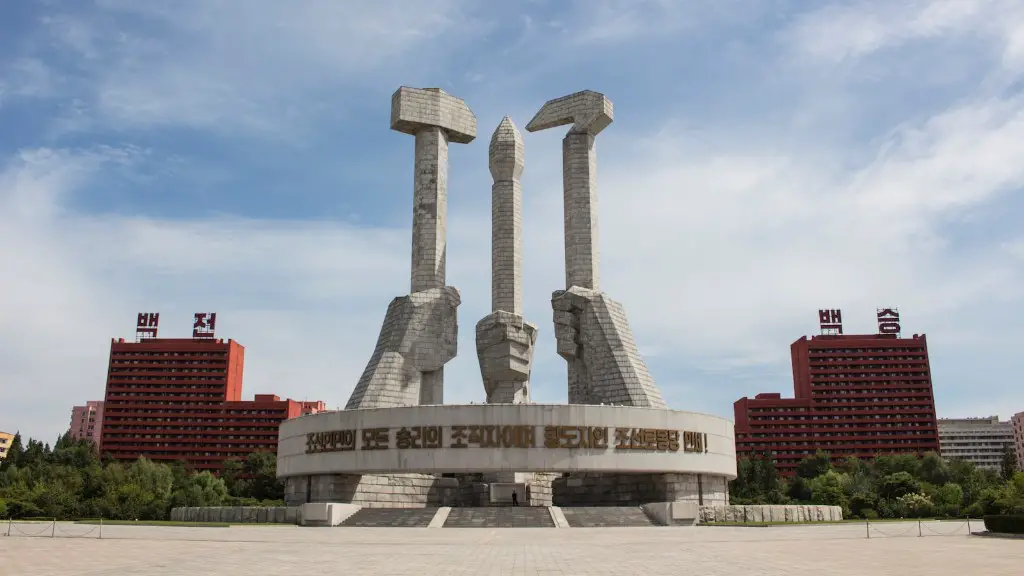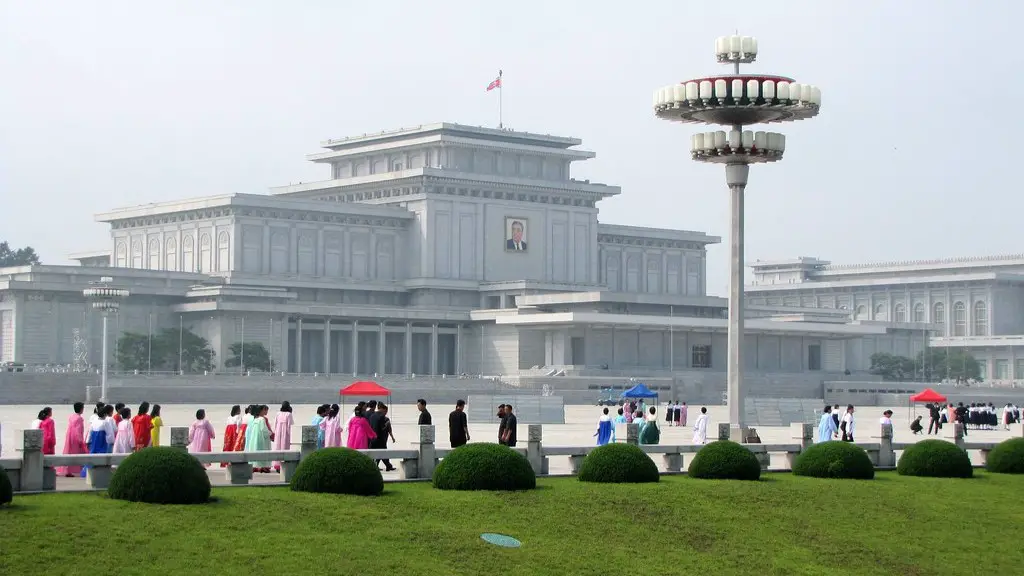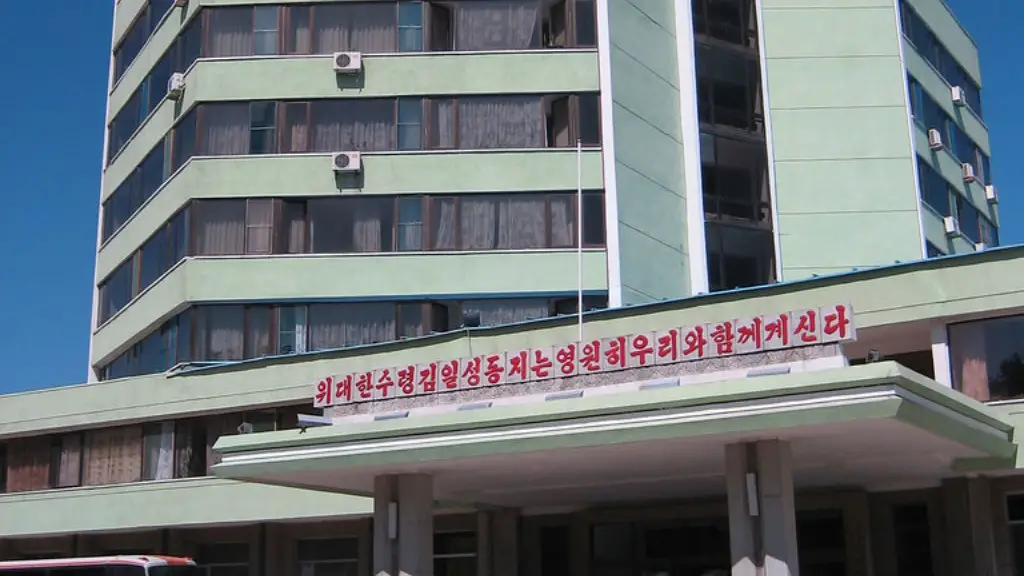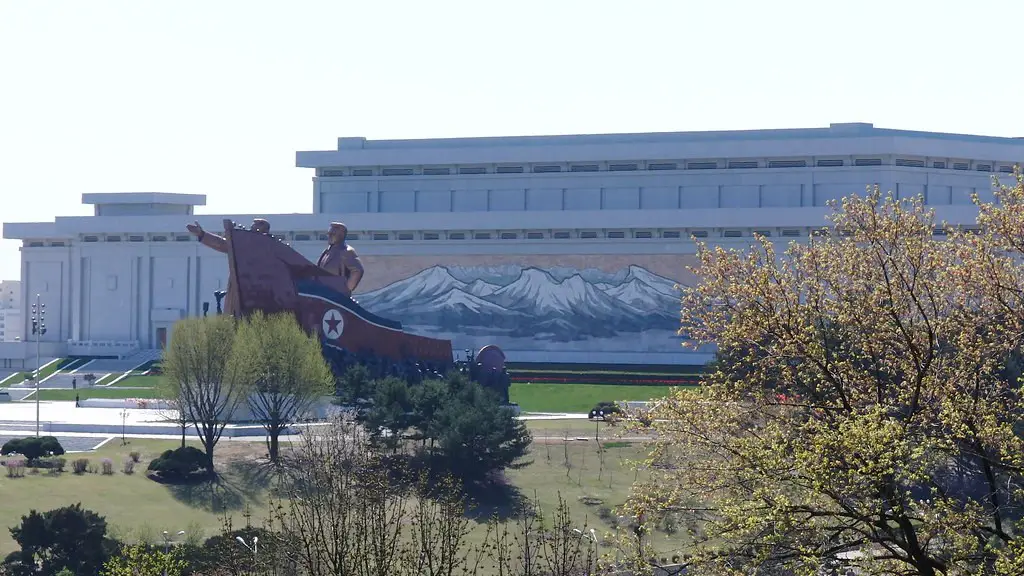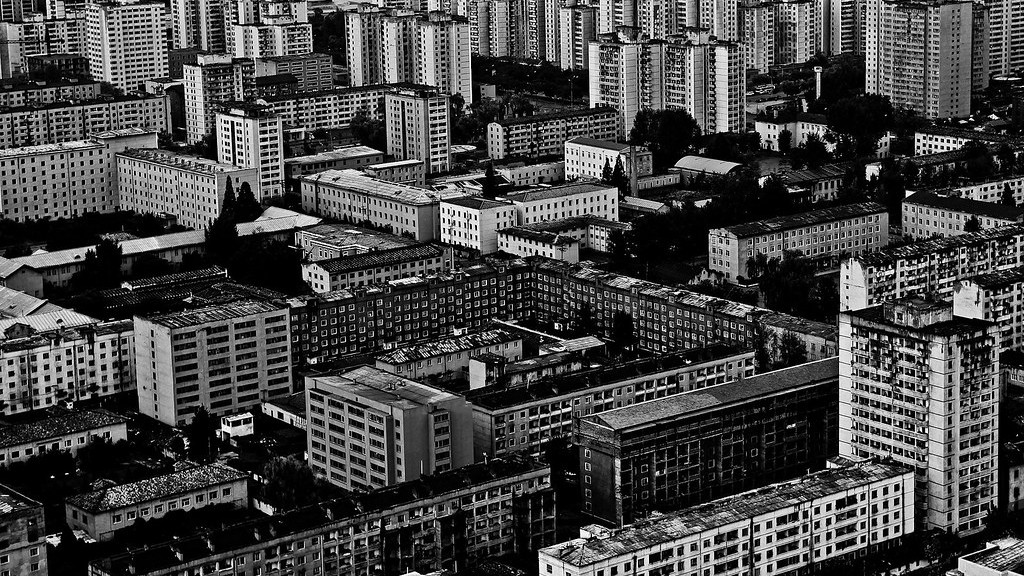North Korea, often seen as a tyrannical dictatorship, is more than that-it is a dystopian, isolated society.The history of North Korea is filled with the pain of war. Over the last seventy years, the country has been ruled by dictators and oppressive rulers who sought to control its population through censorship, restriction of human rights, and surveillance.North Korea is not only oppressive in terms of government control-it is a society where citizens lack access to education, healthcare, and other basic human needs.
In North Korea, citizens are constantly monitored and monitored by the state, and any expressions of dissent are punished severely.The government of North Korea has a zero-tolerance policy towards political dissidents or anyone who speaks out against the government.The government also censors the internet and media, allowing only state-sanctioned materials to be broadcast.
The economy of North Korea has been in a state of unrest since the 1980s, with the country suffering from high levels of poverty and inequality.With a large military and defense budget and little economic investment in infrastructure or industry, the economy has stagnated, making it difficult for ordinary citizens to access basic resources.In addition, wages are low and the workforce is largely unskilled, resulting in a population that is overwhelmingly impoverished.
In North Korea, human rights are severely restricted, with citizens unable to participate in political or social activities that the government does not approve of.Arbitrary arrests and detentions of those who express dissent or criticism are commonplace, with reports of torture and other cruel treatment being regularly reported.North Korea also has one of the most severe censorship regimes in the world, with access to the internet and other media being severely restricted.
The government of North Korea regularly carries out mass surveillance of its citizens, using security cameras and listening devices placed in public spaces to record conversations and monitor movements.In addition, North Korea has a strict policy on censorship, with citizens being subjected to occasional searches and monitoring of their activities and communications.
North Korea’s oppressive political landscape has a direct effect on its citizens, leaving them unable to access basic resources, education and healthcare, and denying them the right to freely express themselves without fear of retribution.Citizens are constantly living in a state of fear and uncertainty, with the government’s heavy-handed tactics making it difficult for them to move forward with their lives.
Political Power Dynamics
North Korea is ruled by a single political party that exercises absolute power over the citizens. The party is composed of the Kim family, who are the sole rulers of North Korea. It is extremely difficult for citizens to challenge the current political system, as power is concentrated in the hands of the elite few. This has resulted in a growing disaffection among the general public, creating an even wider divide between the rulers and their citizens.
The lack of free elections and the lack of a free press in North Korea only serves to further disempower the population, creating a society where people cannot voice their opinions and aspirations without fear of retribution from the state.As a result, North Korea is a closed society where political decisions are made by the ruling elite and citizens are left feeling powerless and unable to effect change.
The government of North Korea is also notorious for its human rights abuses. Citizens are denied basic freedoms such as the right to freedom of speech and the right to a fair trial. Reports of torture, disappearances and executions are commonplace in North Korean prisons, and citizens are regularly subjected to oppressive surveillance.
Cultural Isolation
North Korea is an isolated nation, as citizens are not permitted to leave the country and foreign visitors are rare. This has had a severe impact on the culture of North Korea, as the government heavily regulates access to art, music, and literature.Expressing dissent or criticism of the government can lead to severe repercussions for citizens. This has led to a culture of fear and silence, making it difficult for people to express themselves and feel comfortable in their own country.
In addition, North Korea’s isolation from the world has led to a severely underdeveloped economy, with the country lacking basic infrastructure and resources.This lack of resources has led to widespread poverty, with food shortages and malnutrition being commonplace in the country.In addition, access to education and healthcare is severely limited, resulting in a population that is generally uneducated and lacking access to vital resources.
The lack of access to information and the strict controls placed on citizens in North Korea have had a severe impact on the country’s cultural growth. The government acts as a gatekeeper, disallowing any new ideas or opinions that it deems illegal or threatening to its power. As a result, North Korea has seen little cultural progress over the years, making it difficult for new ideas to take root.
Impact of North Korean Dystopia
The harsh policies of North Korea have had a severe impact on its citizens, who are effectively living in a dystopia.The lack of resources, human rights, and opportunities has resulted in a population that is disadvantaged, disempowered, and fearful.This has resulted in a population that is unable to realize its full potential, and an economy that is unable to develop and grow.
The negative implications of North Korea’s dystopia also extend beyond its borders, as the country serves as a symbol of fear and oppression around the world.The international community has strongly condemned North Korea’s policies and urged the government to reform its policies and embrace human rights.At the same time, the country has been subjected to strict economic sanctions, making it very difficult for the government to implement any changes.
It is clear that North Korea is a society characterized by oppression, isolation, and human rights abuses, and it is likely to remain this way until the current regime is no longer in power.The international community must therefore continue to pressure the North Korean government to accept reforms and to uphold basic human rights.Only then can North Korea begin to move towards a brighter future.
Role of International Community
The international community has an important role to play in helping North Korea move towards a more open and democratic society.There have been some positive steps taken in recent years, with the UN Security Council pushing for the rights of the North Korean people to be respected and for the re-engagement of the international community.
The international community can help North Korea by pushing for greater transparency and accountability from the government. This could include advocating for greater access to the internet, the freedom of information, and the restoration of basic human rights.International organisations can also put pressure on North Korea to end its repression of civil society, and to embrace democracy and the rule of law.
In addition, the international community can provide support to North Koreans who are trying to make positive change in their country. This could include granting asylum and providing legal assistance to dissidents, and providing humanitarian aid to those in need.The international community must also work together to ensure that North Korea is held accountable for its human rights abuses, and that its citizens are treated with the dignity and respect they deserve.
Conclusion
North Korea is a society characterized by oppression and human rights abuses, and the situation for its citizens is dire.The international community has an important role to play in helping North Korea move towards a more open and democratic society, and it is up to all of us to ensure that the government is held accountable and that its citizens can live in freedom and dignity.
